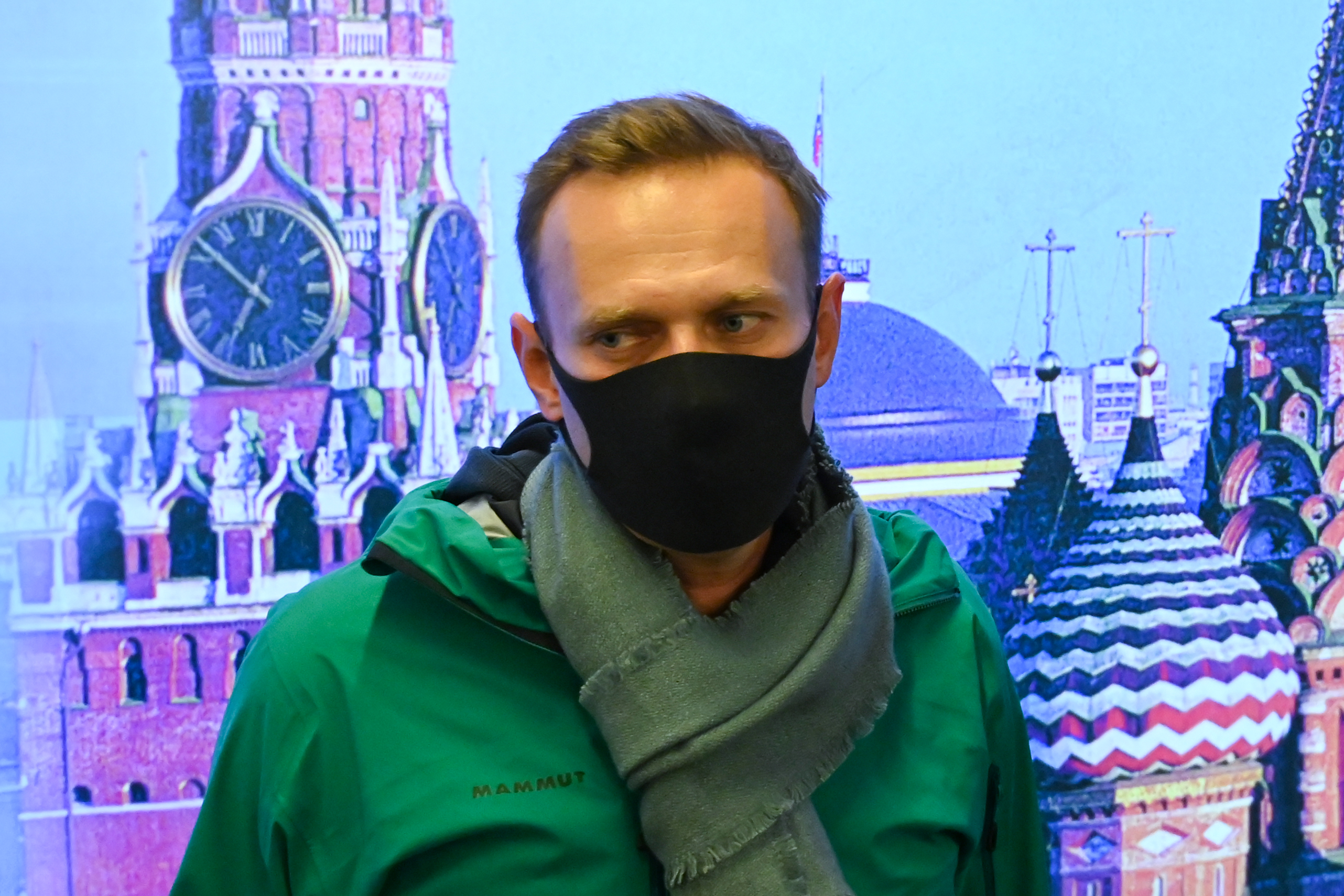The imprisoned Kremlin critic, Alexei Navalny, overtook President Vladimir Putin as Russia’s most mentioned politician on social media, according to the latest analysis, highlighting the growing threat he poses to the country’s authorities.
Russian state-run media has endeavored to protect Navalny’s name and face from the masses, often dismissively referring to him as “a blogger” in an attempt to diminish his status as a political force.
But in the month since his return from Berlin to Russia, where he was treated for poisoning by Novichok, Navalny’s profile has exploded.
An analysis of the Russian online publication Open Media found that between January 17, when he was detained at Moscow Sheremetyevo Airport, and February 16, he was mentioned almost 10.8 million times on social media – or 1.3 million times. times more than Putin.

KIRILL KUDRYAVTSEV / Getty Images
That is more than half of the 18 million mentions that Navalny received in the whole of 2020, when he was the fourth most cited politician, well behind the 96 million mentions collected by Putin.
The data was collected from blogs and social networks like Vkontakte, Odnoklassniki, Facebook, Instagram and Telegram, in addition to TikTok, which the Kremlin had warned last month that it was trying to encourage underage protesters to take to the streets in protest.
Perhaps more significant is the increase in Navalny’s presence in the federal and regional media, where he was mentioned more than 226,000 times – second, behind Putin’s 291,000 times.
On federal television, Navalny was referred 447 times, which although three times less than Putin (1397), still made him the second most cited politician overall, ahead of Prime Minister Mikhail Mishustin (281).
The surge in interest in Navalny came when people took to the streets across Russia in protests against his arrest and subsequent arrest for violating parole terms in a decision he says was politically motivated.
A video seen more than 110 million times produced by his Anti-Corruption Foundation (FBK), which claimed that Putin was the owner of a $ 1.3 billion property in the Black Sea, also spurred action.
How this can translate into political support among the population is unclear.
Senior member of the Moscow Carnegie Center Alexander Baumov wrote this week that Navalny and his team “are brilliant at generating media attention, viral content and a large number of viewers of his anti-corruption videos.
“But that popularity may not necessarily translate into active offline support,” he said.
The shift from Navalny’s suspended sentence to a 32-month prison sentence sparked global outrage. Although Russia is a member of the Council of Europe, Moscow said it would ignore an order from the European human rights court to release Navalny.
Foreign spokeswoman Maria Zakharova said, according to RIA Novosti, that the consequences of the ECHR decision on international law “will be catastrophic, because it is impossible to use legal instruments for political purposes indefinitely”.
On Thursday, the global civil society alliance CIVICUS placed Russia on a list of countries with which it disrespects human rights, due to the brutality of the crackdown on protests in which about 11,000 people, including journalists, have been arrested.
With Navalny’s FBK focused on impacting September’s parliamentary elections, protests have been delayed. There was a change in tactics, with many encouraged on Sunday to show their support by turning on a light in their courtyards.
“It was something that people could do across the country to see that they are not alone in facing repression and injustice,” said FBK executive director Vladimir Ashurkov. Newsweek.
“It is a low-risk activity compared to taking to the streets and facing the security police,” he said. “It is another stage, there will be others.”
The graph below provided by Statista shows the time that Russian President Vladimir Putin was in power.

